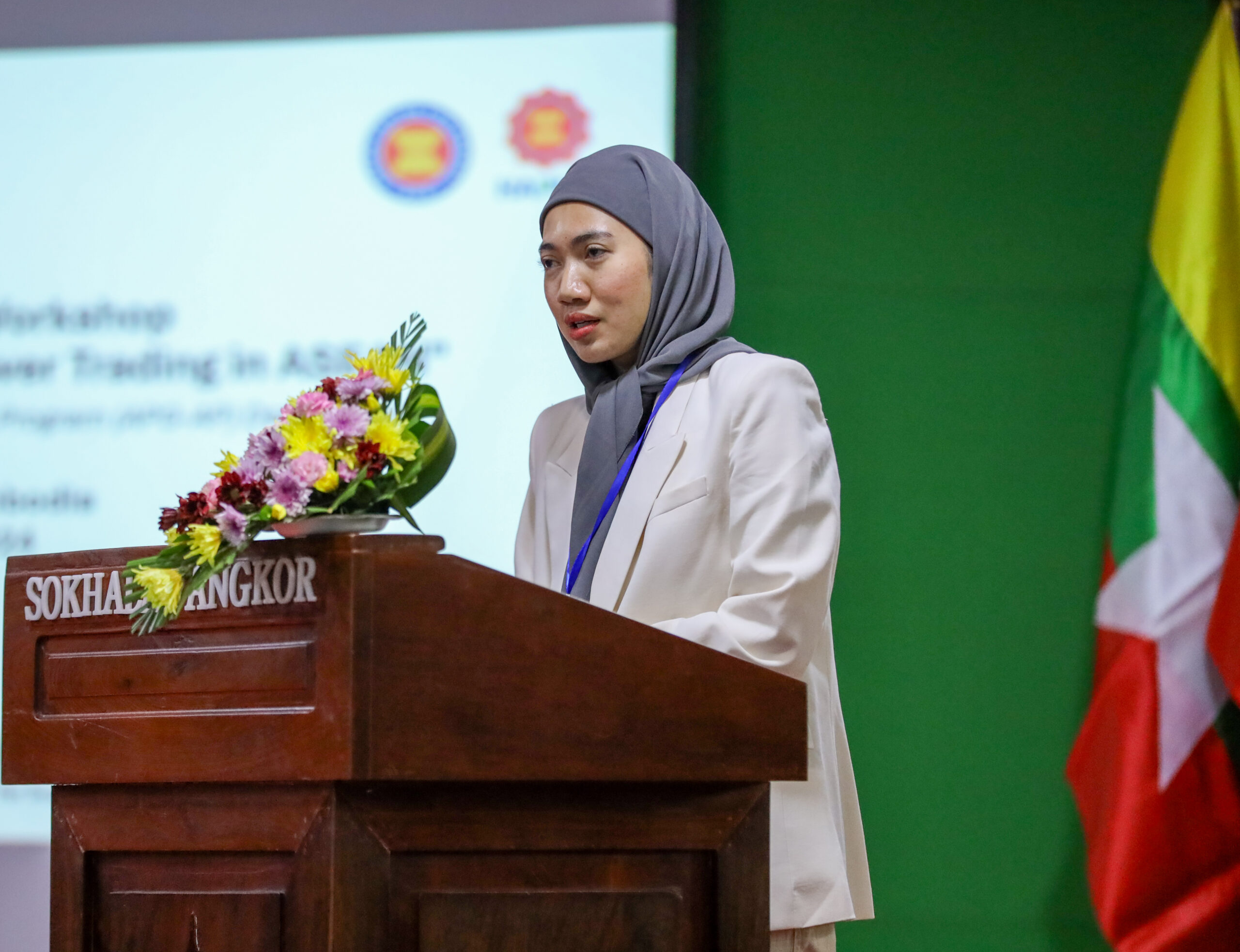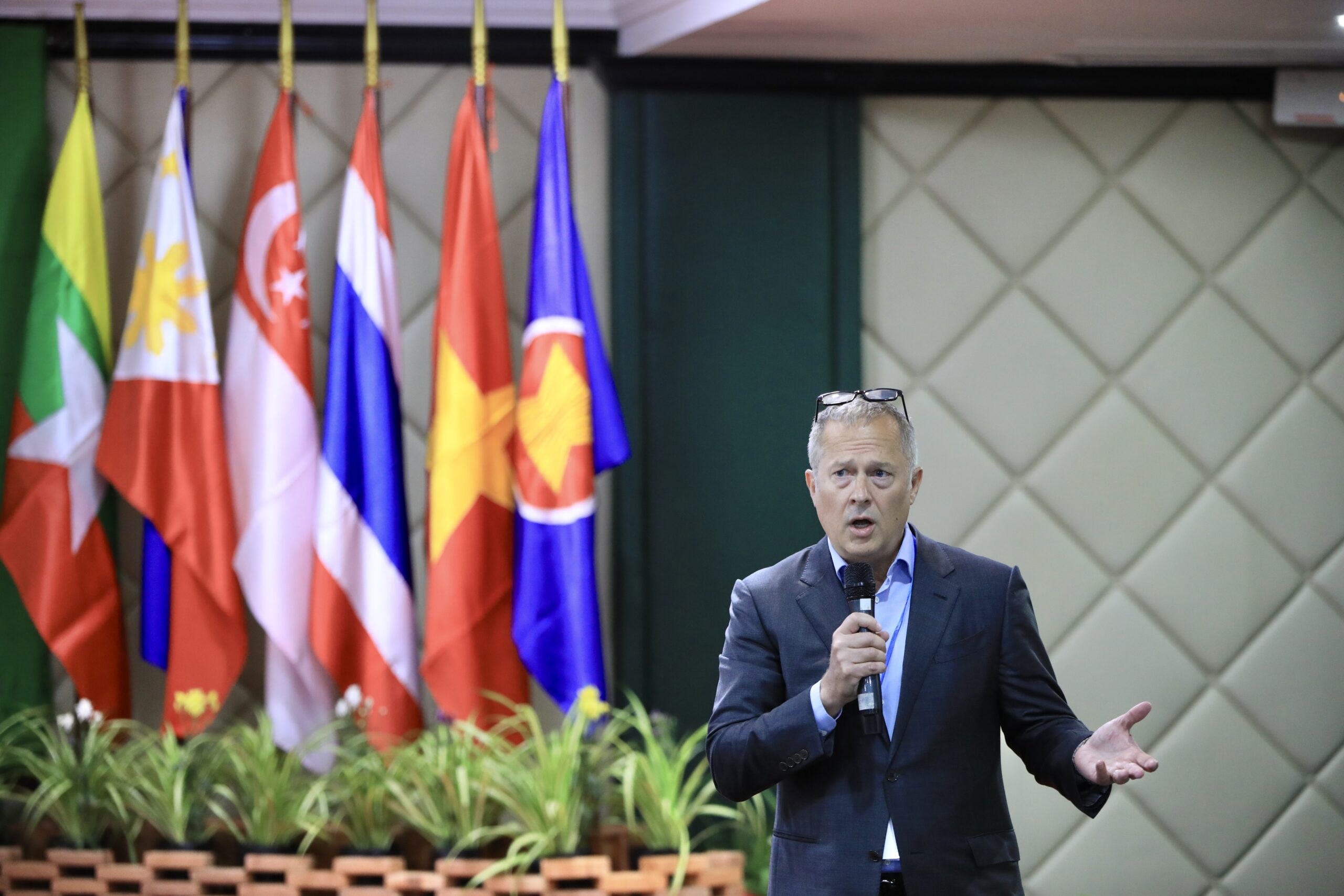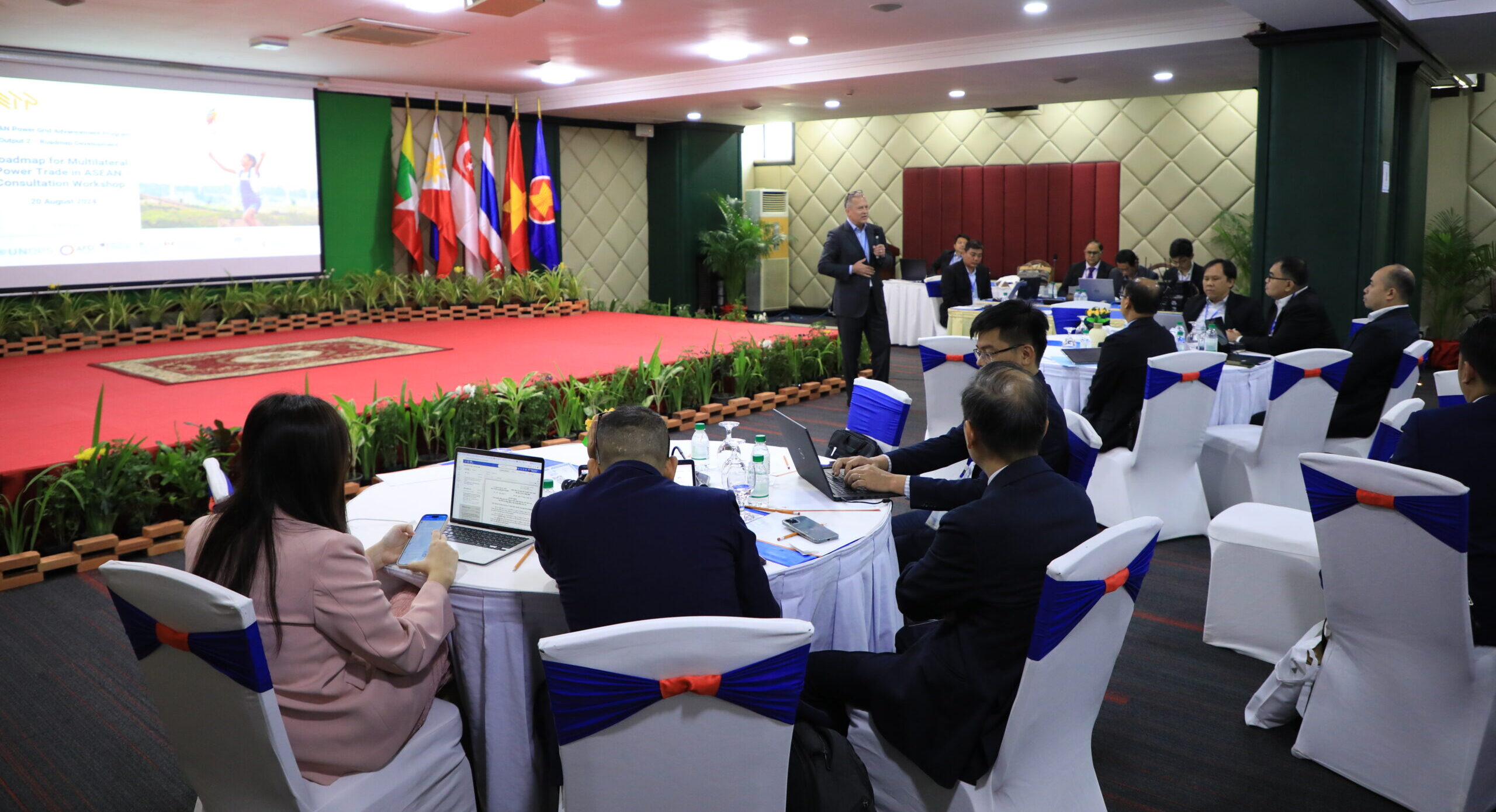Menu

Photo 1. Group Photo of the ASEAN Centre for Energy (ACE) and the Heads of ASEAN Power Utilities/Authorities (HAPUA) representatives
The ASEAN Centre for Energy (ACE) in collaboration with the Electricite du Cambodge (EDC) co-organised the one-day dissemination workshop for the “Roadmap for Multilateral Power Trade (MPT) in ASEAN” on Tuesday, 20 August 2024 as an associated meeting of the 39th HAPUA Working Committee and the 40th HAPUA Council meeting. Held in Siem Reap, Cambodia, the dissemination workshop brought together the key energy stakeholders, experts, and representatives, including HAPUA Secretariat, representatives of the utilities/ HAPUA members, regulators/ AERN, and policymakers/ APGCC of nine (9) ASEAN Member States, namely Brunei Darussalam, Cambodia, Indonesia, Lao PDR, Malaysia, Myanmar (online), Philippines, Thailand, and Viet Nam. With the support and participation from the representative of the Southeast Asia Energy Transition Partnership (ETP), and GIZ’s Clean, Affordable, and Secure Energy for Southeast Asia (CASE), the workshop is aimed to share the key findings and recommendations, of the Roadmap for Multilateral Power in ASEAN, which is part of the output of ASEAN Power Grid Advancement Program (APG-AP).
The workshop began with opening remarks from distinguished figures. Dr Leng Sovannirth, Deputy Director of Transmission Division of Electricite du Cambodge (EDC), welcomed the esteemed HAPUA colleagues, distinguished APGCC and AERN members, ACE and partners. He highlighted the need for collaborative measures in ensuring the energy transition efforts run seamlessly in the context of ASEAN power sector. Nadhilah Shani, Senior Research Analyst on Power at ACE, welcomed the workshop participants from APG-related bodies. She emphasised the significance of MPT in the future of APG and encouraged the workshop participants to discuss the findings of the roadmap. Adritha Subbiah, Senior Programme Manager, Southeast Asia Energy Transition Partnership – United Nations Office for Project Services (ETP-UNOPS), then discussed the growing endeavours of AMS in expanding MPT and the importance of MPT in supporting the energy transition agenda. Sascha Oppowa, Project Director, Clean, Affordable and Secure Energy (CASE) for Southeast Asia (CASE), also addressed region’s increasing effort of grid enhancement to integrate more renewables through APG, with MPT enabling cleaner energy to be incorporated into the mix.

Photo 2. Opening Remarks by Nadhilah Shani, Senior Research Analyst on Power at ACE
During the morning session, Eric Shumway, Senior Director at Delphos anchored the day with a presentation on introduction to the MPT Roadmap, providing a brief overview of the existing and different types of power markets in ASEAN. The session provided a clear summary of the methodology and guiding principles behind the roadmap, built on this foundation by examining the existing grid-to-grid interconnections within ASEAN, offering insights into the current state, dynamics and different types of national markets and trade orientation factors which are critical to the successful implementation of MPT. Moving forward, Eric delved into an in-depth overview of how contracts underpin market stability and liquidity, with specific case studies from regions such as the Southern African Power Pool (SAPP), Central American Electrical Interconnection System (SIEPAC) and the ISO New England (ISO-NE) short-term markets. The discussions further explored insights from advanced interconnected markets in regions such as Europe, the USA, and Canada, offering AMS sophisticated models for implementing cross-market short-term energy trading frameworks as the region progresses to consider as it moves forward.

Photo 3. Presentation by Eric Shumway, Senior Director at Delphos
The subsequent sessions addressed the critical challenges and strategic pathways for developing intermediate-stage markets essential for MPT within ASEAN. The focus shifted to key market design considerations, focusing on establishing minimum MPT requirements, achieving grid code harmonisation, and evaluating the impact of diverse market topologies. The discourse underscored the importance of aligning market design with ASEAN’s distinctive regional dynamics. Building on these discussions, participants were presented with actionable recommendations for intermediate-stage market development, with initiatives like LTMS-PIP and BIMP-PIP highlighted as foundational projects for advancing MPT. The discussions then move to tackling the practical complexities of MPT implementation, including the need for strong political commitment, the establishment of dispute resolution mechanisms, and overcoming significant infrastructure financing challenges that must be addressed to realise the full potential of MPT across the region.

Photo 4. Discussion Session
As the workshop approached its conclusion, the focus shifted to the evolution and future trajectory of ASEAN’s power markets. Dr. Ravi Segal of Delphos provided an in-depth analysis of the interconnections necessary for advancing MPT, discussing transmission project development timelines, and the potential evolution of MPT sub-regional blocks. This session outlines the technical and logistical challenges that must be addressed to ensure seamless integration of MPT across ASEAN. In the final discussions, Delphos revisited the strategic recommendations emphasised throughout the workshop, underscoring the necessity of implementing these initiatives at the ASEAN-wide level.
As the workshop approached its conclusion, the focus shifted to the evolution and future trajectory of ASEAN’s power markets. Dr. Ravi Segal of Delphos provided an in-depth analysis of the interconnections necessary for advancing MPT, discussing transmission project development timelines, and the potential evolution of MPT sub-regional blocks. This session outlines the technical and logistical challenges that must be addressed to ensure seamless integration of MPT across ASEAN. In the final discussions, Delphos revisited the strategic recommendations emphasised throughout the workshop, underscoring the necessity of implementing these initiatives at the ASEAN-wide level.
The workshop concluded with a guided feedback session, where participants engaged in an interactive discussion to work through key portions of the roadmap. This session provided an opportunity for participants to reflect on the workshop’s content, offer their perspectives, and ensure that the roadmap’s recommendations were well-aligned with the region’s needs. The event was wrapped up by Eric Shumway, Senior Director at Delphos with a comprehensive summary of the discussions, reinforcing the roadmap’s strategic importance in guiding ASEAN’s journey towards a fully integrated and sustainable multilateral power trading system. The workshop provided a strategic direction for the expansion of MPT in ASEAN, with the AIMS III Phase 3 analytical work (Output 3 of the APG-AP) being the next step. Through the work of AIMS III Phase 3 and in-depth consultations with the ASEAN Member States, the region will progress towards the implementation of the MPT pilot projects (Output 4 of the APG-AP) in the future.
